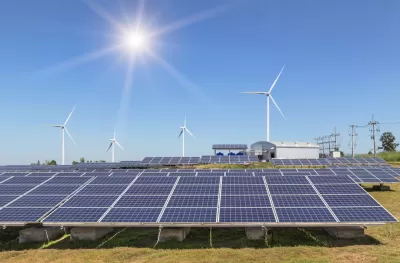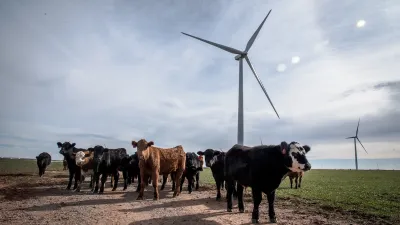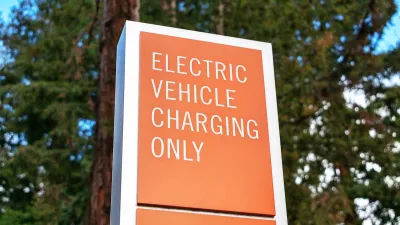A non-binding resolution is a small step in the direction of clean energy.

"The Chicago City Council voted Wednesday to approve a non-binding resolution that sets a goal of transitioning the city to 100 percent clean energy over the next 16 years," reports Alex Ruppenthal.
"The resolution, which passed unanimously, calls for the city’s buildings to be powered exclusively by renewable sources by 2035. It also sets a goal of converting all Chicago Transit Authority buses to electric energy by 2040," adds Ruppenthal.
The resolution is non-binding, meaning the vote was largely a symbolic gesture, explains Ruppenthal. The resolution does, however, put in motion a process to create a plan for transitioning to clean energy. That clean energy plan is due by 2020.
FULL STORY: Chicago City Council Approves Clean Energy Resolution

Alabama: Trump Terminates Settlements for Black Communities Harmed By Raw Sewage
Trump deemed the landmark civil rights agreement “illegal DEI and environmental justice policy.”

Planetizen Federal Action Tracker
A weekly monitor of how Trump’s orders and actions are impacting planners and planning in America.

Why Should We Subsidize Public Transportation?
Many public transit agencies face financial stress due to rising costs, declining fare revenue, and declining subsidies. Transit advocates must provide a strong business case for increasing public transit funding.

Understanding Road Diets
An explainer from Momentum highlights the advantages of reducing vehicle lanes in favor of more bike, transit, and pedestrian infrastructure.

New California Law Regulates Warehouse Pollution
A new law tightens building and emissions regulations for large distribution warehouses to mitigate air pollution and traffic in surrounding communities.

Phoenix Announces Opening Date for Light Rail Extension
The South Central extension will connect South Phoenix to downtown and other major hubs starting on June 7.
Urban Design for Planners 1: Software Tools
This six-course series explores essential urban design concepts using open source software and equips planners with the tools they need to participate fully in the urban design process.
Planning for Universal Design
Learn the tools for implementing Universal Design in planning regulations.
Caltrans
Smith Gee Studio
Institute for Housing and Urban Development Studies (IHS)
City of Grandview
Harvard GSD Executive Education
Toledo-Lucas County Plan Commissions
Salt Lake City
NYU Wagner Graduate School of Public Service





























